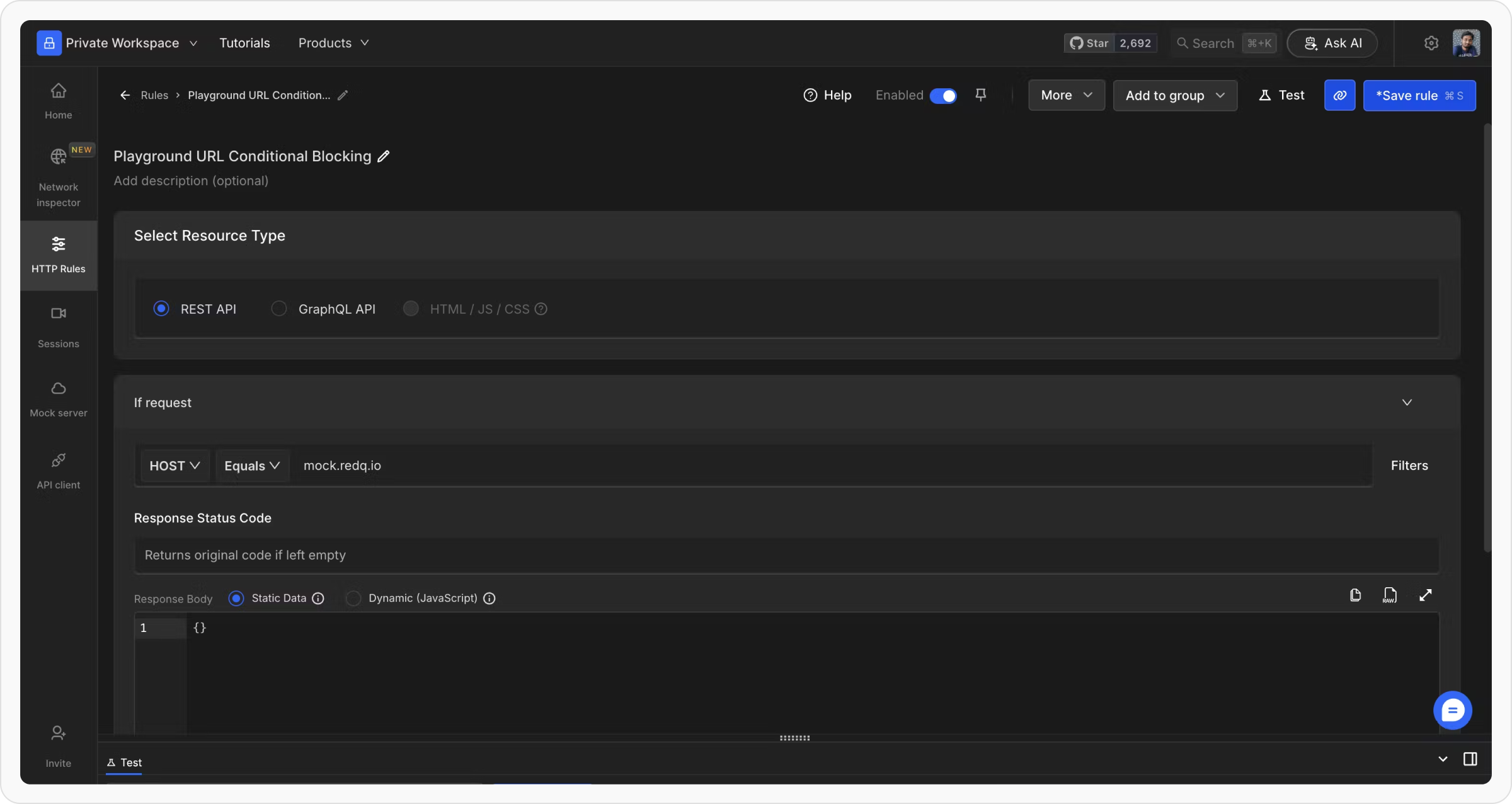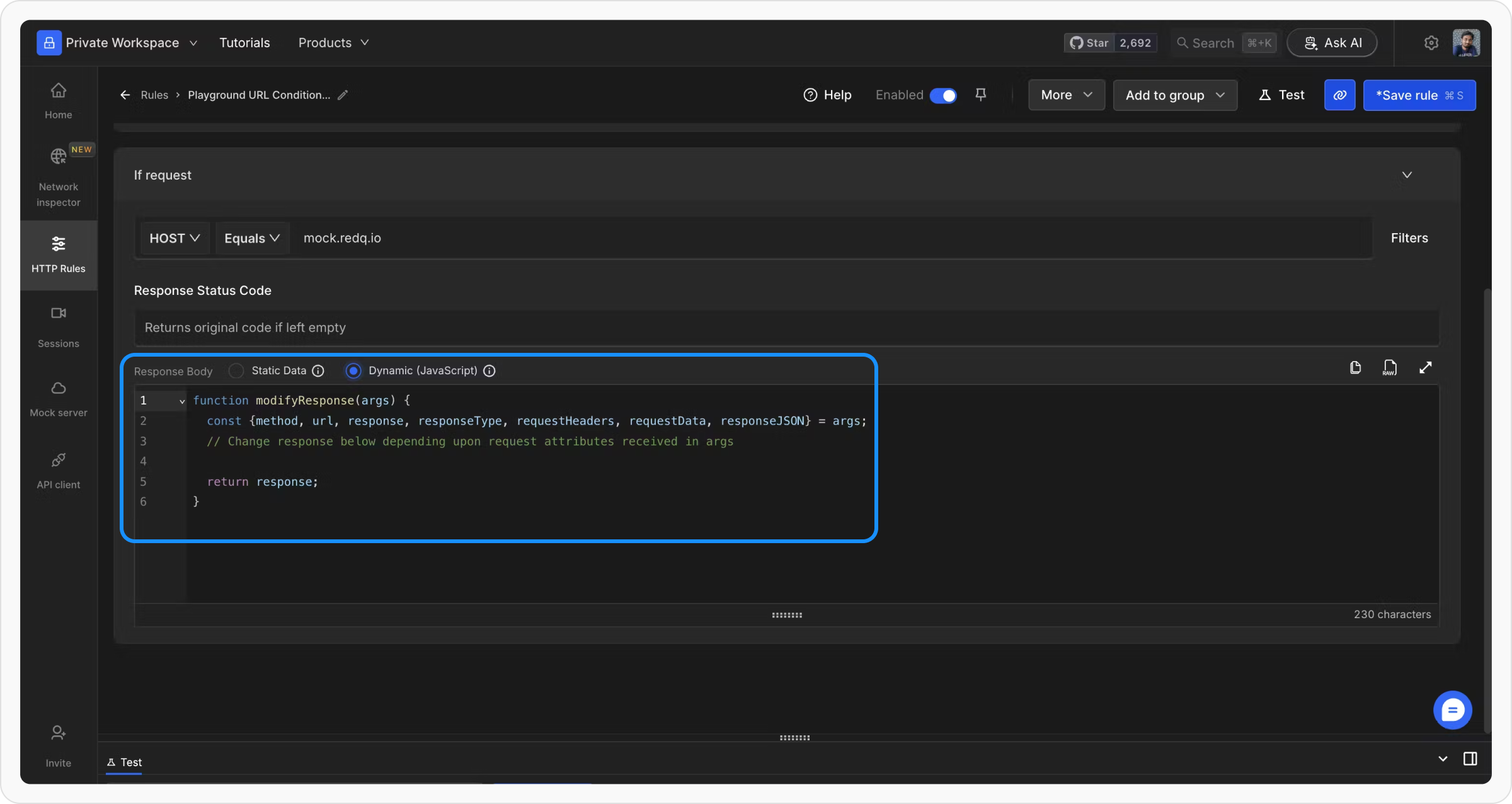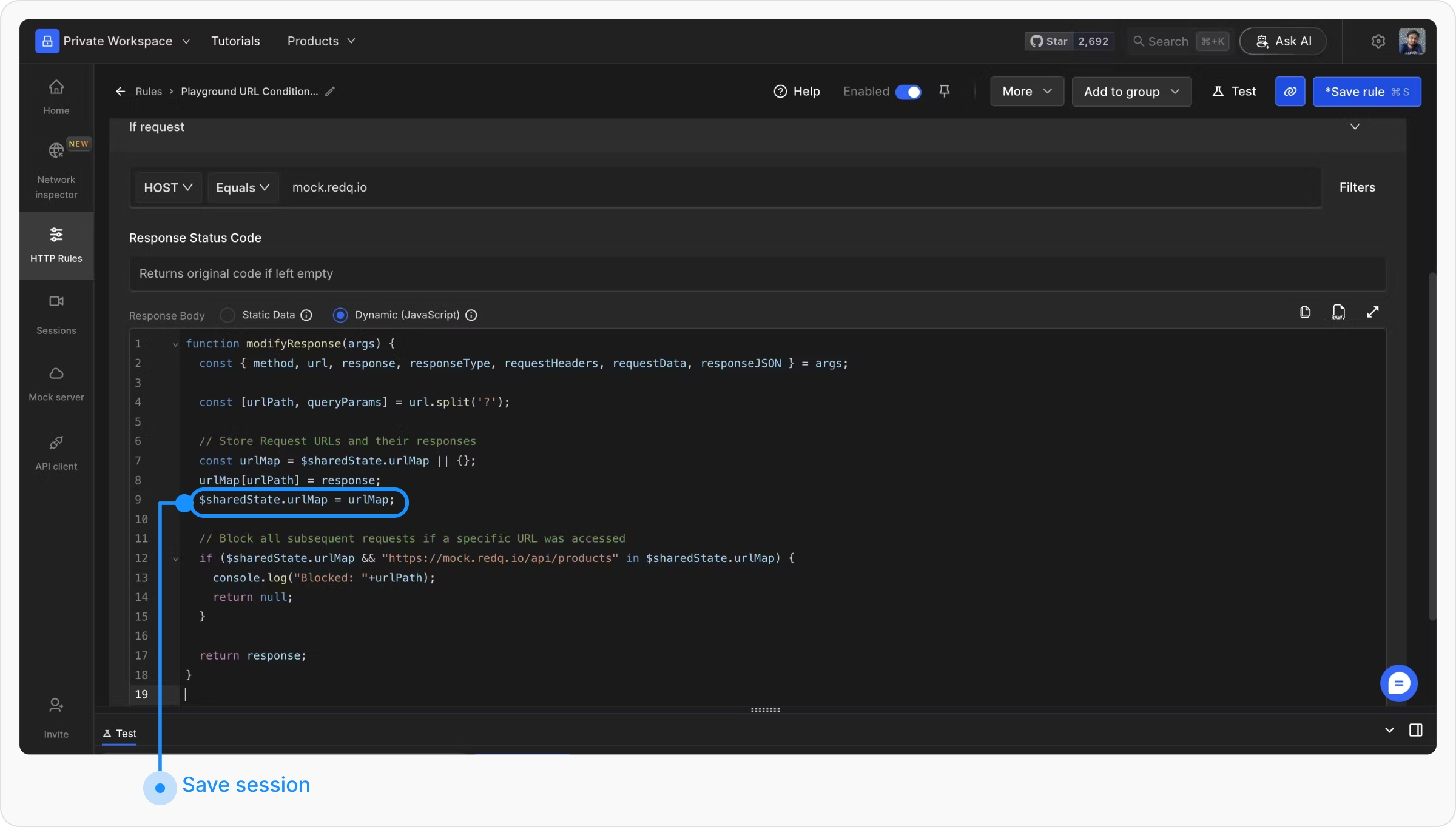Shared State allows developers to store and retrieve data within and across Modify Request Body and Modify API Response rules. This functionality is facilitated by
$sharedState, a JavaScript object where you can assign key-value pairs to enhance rule customisation.
Use Cases for Shared State
- Conditional Request/Response Modification: Use shared state to modify requests or responses dynamically based on conditions stored in prior requests. For example, you can conditionally fail requests based on request counts.
- Data Aggregation Across Requests: Collect and aggregate data from multiple requests to use within a rule. For instance, you can store API responses and utilize them for further processing across different Requestly rules.
- Token Management Across API Requests: Manage shared values such as tokens or other critical data across various API interactions, streamlining complex workflows.
How to Use Shared State
Create or Modify a Rule
Start by creating a new “Modify Request” or “Modify Response” rule in Requestly. You can access this feature in both the web app and desktop versions.

Enable Dynamic JavaScript Modification
In the rule editor, select “Dynamic JavaScript Modification” to leverage 
$sharedState. This enables the use of JavaScript for programmatic customisation.
Best Practices
-
Namespace Your Keys: Use structured keys (e.g.,
"moduleX.keyY") to avoid overwriting shared data. - Clean Up When Done: Remove unnecessary data to prevent memory bloat.
- Test Thoroughly: Ensure that shared state logic doesn’t introduce unintended side effects.
Frequently Asked Questions
How Do I Access the Shared State?
How Do I Access the Shared State?
What Data Can Be Stored?
What Data Can Be Stored?
You can store any data type that can be serialized into JSON, such as strings, numbers, booleans, objects, and arrays.
How Long Does Data Persist in $sharedState?
How Long Does Data Persist in $sharedState?
How Can I Limit Requests (e.g., Only Block First 3 Requests)?
How Can I Limit Requests (e.g., Only Block First 3 Requests)?
Use
$sharedState to count requests and dynamically control behavior:

